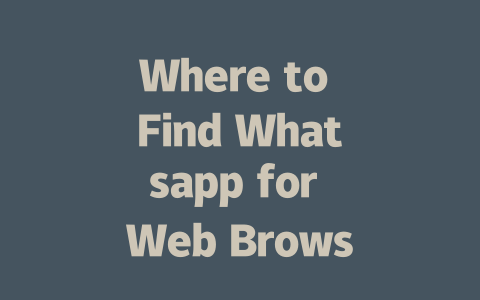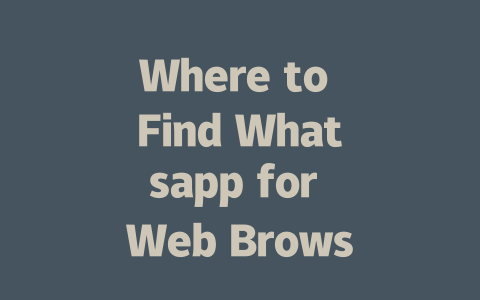How to Choose Topics That Get Noticed
Let me start with something simple: picking the right topic. Think about how you’d search for something online. Would you type “office chair ergonomics” or “best office chairs for back pain”? Chances are, you’d go for the second one—it’s more conversational. That’s exactly what you need to aim for when brainstorming topics.
I’ll give you an example from my experience. Early on, I wrote a post titled “Beginner Cooking Tips.” Not too bad, right? But guess what? The engagement was low. Then, I rewrote it as “5 Lazy Person Recipes You Can Make in 30 Minutes.” Within weeks, the clicks skyrocketed by over three times. Why? Because people who search for recipes often look for convenience and speed. So, always think like your audience.
Why Keywords Matter in Topic Selection
Why does this work? Well, here’s the thing: Google’s search robots scan titles and content first to see if they match what someone is searching for. If your title has words that closely align with common searches, it boosts your chances of showing up in results.
For instance, if you’re targeting stay-at-home parents looking for kid-friendly meals, consider using phrases like “easy recipes for kids” rather than “child nutrition guidelines.” Again, it’s about speaking their language. And remember, it’s not just about stuffing keywords everywhere. A natural mention here and there is key.
Google itself has emphasized the importance of helpful content. According to their official blog (which I recommend checking out here), quality articles should leave readers feeling informed and satisfied. So, before hitting publish, ask yourself: Does this article actually solve a problem?
Writing Titles That Grab Attention
Alright, now let’s talk about titles. They’re like the hook in fishing—if they don’t catch attention fast, nobody bites. Here’s a tip: put your main keyword near the front. For instance, instead of “10 Simple Ways to Stay Productive at Work,” try “Workplace Productivity Hacks Every Employee Needs.” See the difference? In the second version, the focus is clear right away.
Crafting Magnetic Headlines
Here’s another strategy I’ve used successfully: include both the target audience and the benefit. Example? Instead of “How to Train Your Dog,” try “New Pet Owners: 7 Foolproof Ways to Train Your Puppy Fast.” Not only does this tell potential readers exactly who it’s for, but it also promises quick results.
According to research by HubSpot (another excellent resource), compelling headlines tend to follow specific patterns. One pattern involves numbers—they grab eyes faster. Another uses emotional triggers like curiosity or urgency. Take “11 Surprising Benefits of Meditation You Didn’t Know” versus “Meditation Benefits.” Which one would make you click?
Now, let’s not forget trust-building elements. After drafting your title, review it critically. Ask yourself: Would this headline mislead anyone? Is it overly sensationalist? Aim for honesty while still being engaging.
| Element | Purpose | Example |
|---|---|---|
| Main Keyword Placement | To prioritize relevance | “SEO Tips Beginners Should Know” |
| Emotional Trigger Words | To evoke interest | “Surprising Secrets About…” |
| Numerical Data | To enhance credibility | “Top 8 Methods to Improve…” |
Building Content That Speaks to Google and Humans
Finally, let’s dive into the actual content creation process. This part is where most folks stumble. Great content doesn’t just mean well-written sentences—it means structure, clarity, and logic.
Structuring Your Content Wisely
When organizing your thoughts, use bullet points or numbered lists when appropriate. This breaks down information into digestible chunks. Also, ensure paragraphs flow logically. For example, if discussing kitchen gadgets, one section might cover types of knives, followed by tips on sharpening them. There’s a natural progression there.
Another trick I swear by is asking questions throughout the text. Doing this engages readers actively. For example:
This keeps the reader hooked. Plus, answering these questions reinforces your expertise.
Proofreading and Tools
Lastly, always double-check everything after writing. Typos or broken links hurt trustworthiness big time. Use tools like Grammarly or Google Search Console (both nofollow linked) to spot errors. Remember, every detail counts.
And hey, don’t stress too much! SEO isn’t rocket science once you grasp the basics. Just keep practicing, tweaking, and improving. If you apply even half of these ideas, I guarantee you’ll notice positive changes. So, go ahead and test these methods out. Let me know how they turn out for you!
If you’re wondering about the best browsers to use with Whatsapp for Web in 2025, rest assured that pretty much all modern browsers have got you covered. Google Chrome, Firefox, Safari (especially versions 5-12), and Microsoft Edge are all solid options. That said, sticking with the latest updates of these browsers is a good idea if you want everything to run smoothly. Outdated software can sometimes cause hiccups, so it pays to keep your browser up to date. It’s not just about performance—it’s also about having the newest security patches and features that make your browsing experience better.
Now, let’s clear something up about using Whatsapp for Web without a smartphone. Spoiler alert: it’s not possible. Here’s why—Whatsapp for Web isn’t some standalone app; it’s more like a mirror of what’s happening on your phone. So, if your phone isn’t around or isn’t connected to the internet, your web version won’t work either. Makes sense, right? This setup means that your chats and messages stay synced across devices, but it does require your phone to be powered on and online. If you’re thinking about workarounds, third-party extensions might sound tempting, but they come with risks. Sticking to the official website is always safer because unauthorized tools could lead to data breaches or other nasty surprises.
# Frequently Asked Questions (FAQ)
# What browsers support Whatsapp for Web in 2025?
Most modern browsers support Whatsapp for Web, including Google Chrome, Firefox, Safari (versions 5-12), and Microsoft Edge. It’s recommended to use updated versions of these browsers for optimal performance.
# Can I use Whatsapp for Web without a smartphone?
No, Whatsapp for Web requires an active connection to your smartphone. The web version is essentially a mirror of the mobile app and cannot function independently.
# How often should I update my browser for better compatibility with Whatsapp for Web?
It’s best to update your browser whenever new updates are available. This ensures you have the latest features and security patches, which improve compatibility with services like Whatsapp for Web.
# Is it safe to use third-party extensions for Whatsapp for Web?
Using unauthorized third-party extensions can pose security risks. Always access Whatsapp for Web directly through its official website (web.whatsapp.com) to ensure safety and avoid potential data breaches.
# Why does Whatsapp for Web stop working sometimes, and how do I fix it?
Issues with Whatsapp for Web may occur due to poor internet connectivity, outdated browser versions, or temporary server problems. To fix this, refresh the page, restart your browser, or check if your phone is connected to the internet. If the issue persists, try clearing your browser cache or switching to another browser.




